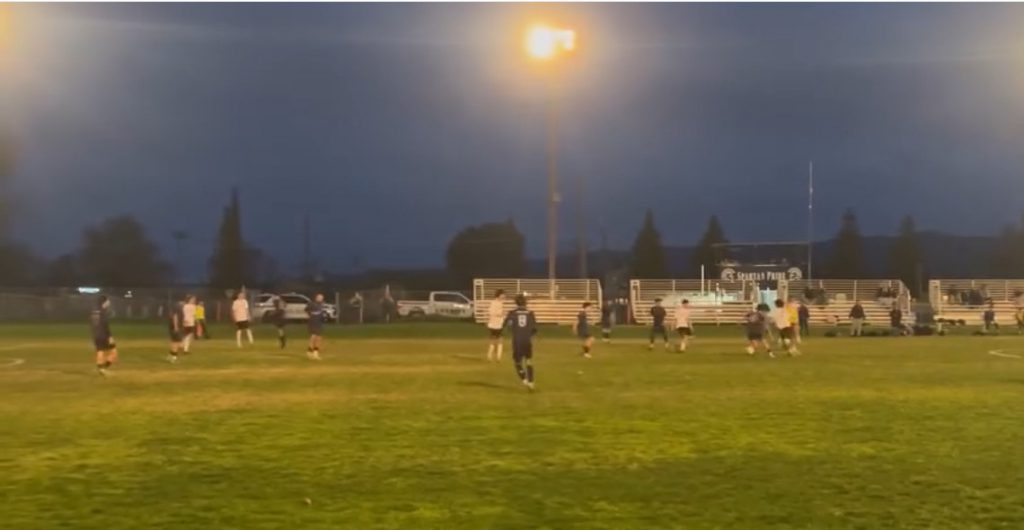
Despite controlling the ball for much of the second half, Denair’s offense could never break through with the tying goal in what turned out to be the final match of the season, a 1-0 loss Tuesday night to Bradshaw Christian in the Sac-Joaquin Section Division 6 boys soccer playoffs.
It was only the fourth time in 23 matches that the Coyotes failed to score. One was a 5-0 loss to Summerville in the first match of the season. The other two were 0-0 ties against Hughson and Delhi.
“We got pretty close but their keeper stopped them all, including three headers. He was pretty good,” said Denair coach Antonio Padilla. “It was just one of those games.”
Denair (11-8-4) – the No. 6 seed in the 12-team tournament – trailed 1-0 at halftime after the Pride scored the game’s only goal about 25 minutes into the first half.
The Coyotes spent most of the second half in Bradshaw’s end of the field but couldn’t come up with the key play to tie the score.
“It was a good game,” Padilla said. “In the first half, they dominated. In the second half, we controlled the ball. Everybody was pressing. We left it all on the field. We fought hard. I’m very proud of them.”
It was the fourth year in a row Denair made the playoffs. In 2022 and 2023, the Coyotes won Section championships and qualified for the Northern California tournament.
With many of his key players returning next season, Padilla expects Denair to be right back in the playoff mix.
“They worked super hard,” Padilla said of his team. “I told them that tough times will make you better in life.”
Second-seeded Bradshaw Christian (14-7-1) will face No. 1 Millennium (16-4-4) of Tracy in Saturday’s championship match at Cosumnes River College in Sacramento. Millennium defeated Ripon Christian 3-1.




